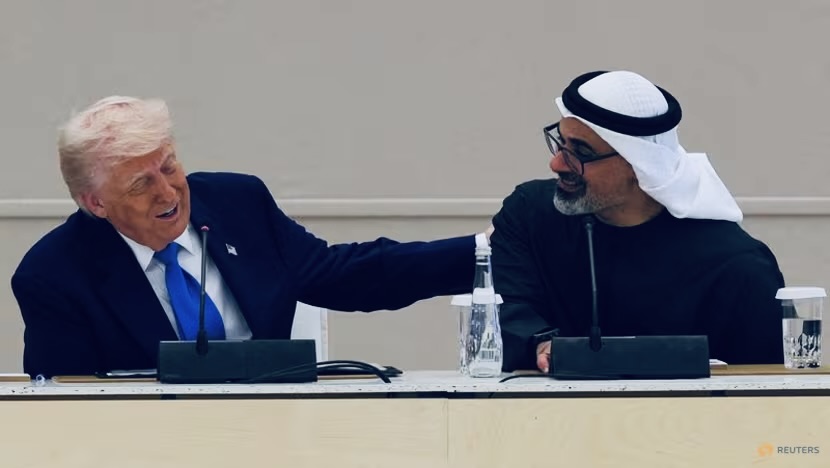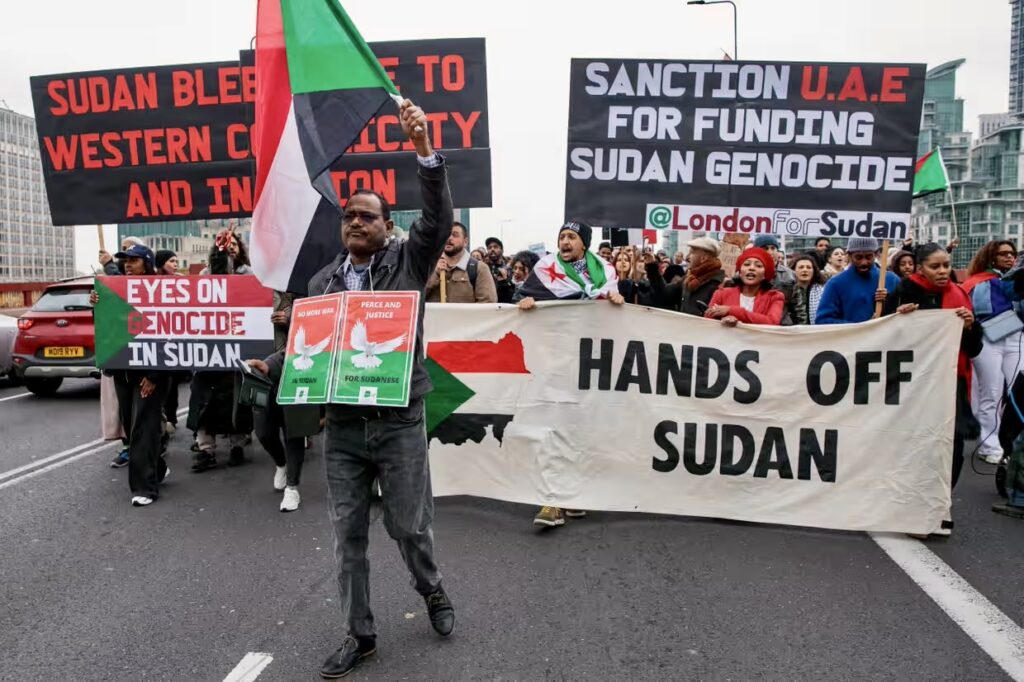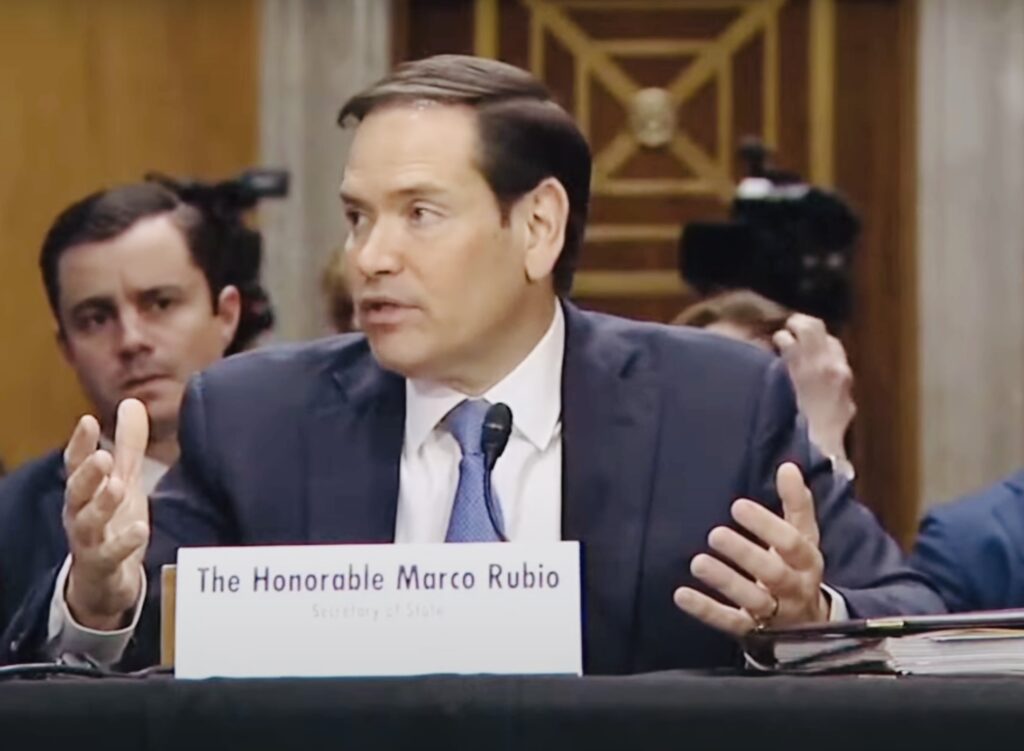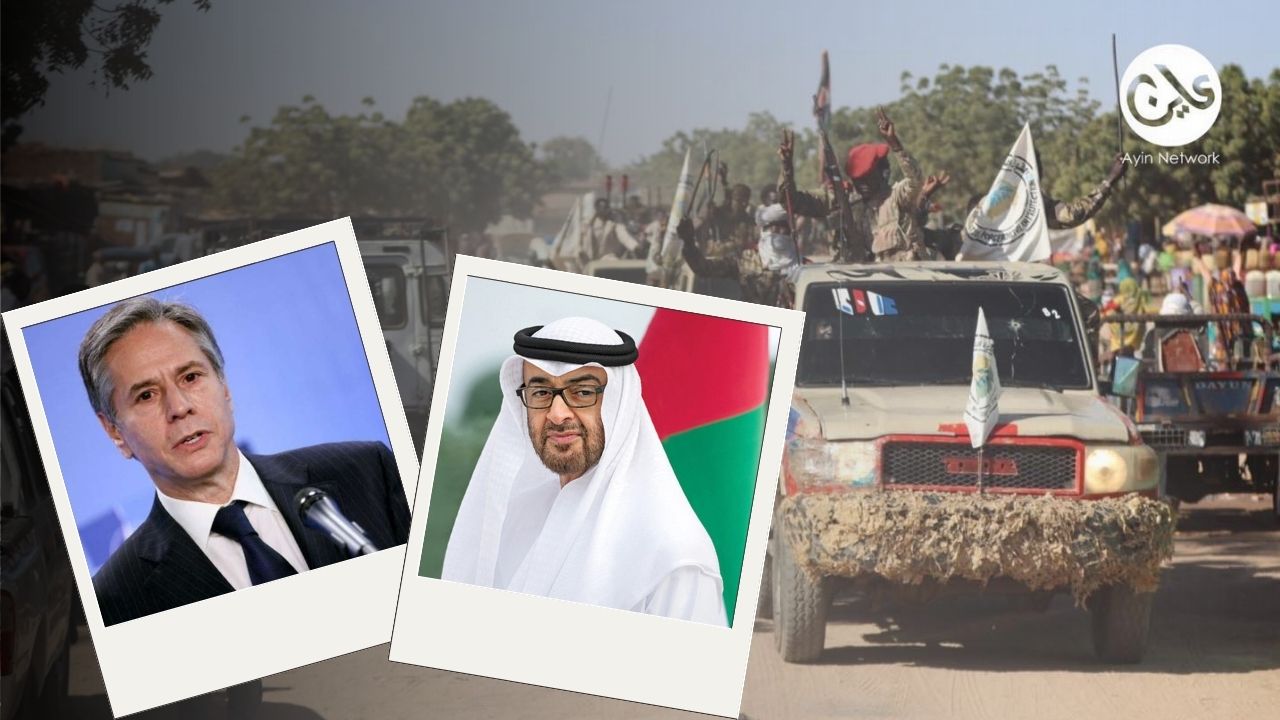Sudan and Trump’s Gulf tour: behind-the-scenes presence
US President Donald Trump’s recent tour of three Gulf states—Saudi Arabia, the United Arab Emirates (UAE), and Qatar—that have strong ties to Sudan did not officially address the ongoing war in the country. Sudanese diplomatic sources, however, told Ayin that the Sudanese crisis was discussed at a joint meeting between Riyadh and Washington during Trump’s visit to Saudi Arabia.
Saudi Arabia called on Trump to speak to the UAE to end the conflict. “Saudi Arabia informed Trump of the need to speak with UAE ruler Mohammed bin Zayed, and Riyadh conveyed its message through the US president, expressing its dissatisfaction with Abu Dhabi’s role in Sudan,” the diplomatic source told Ayin.
Multiple reports claim the UAE’s ruler has close ties to the Rapid Support Forces (RSF) leader Lt Gen. Mohamed Hamdan Dagalo and has provided a steady flow of arms to the paramilitary force that has fought against the national army since mid-April over two years ago.
During the Gulf-US summit, Saudi Crown Prince Mohammed bin Salman affirmed that a solution to the Sudanese crisis remains possible by reviving the ceasefire talks via the Jeddah platform between the RSF and the army.
International efforts to halt the fighting between the Sudanese army and the Rapid Support Forces faltered throughout 2024, including the Geneva negotiations, which the armed forces boycotted, demanding that the RSF implement certain preconditions. The British proposal also collapsed during the UN Security Council meeting due to a Russian veto.

Sudan apathy
“The United States, especially after Donald Trump’s arrival at the White House, no longer cares as much about humanitarian aid, democracy, and civilian rule in troubled countries or those mired in armed conflicts as it does about pursuing direct commercial interests,” says Sudan researcher and founder of the Sudan Transparency and Policy Tracker, Suleiman Baldo.
“The US administration has prioritised direct interests over human rights and aid previously allocated to poor countries,” he added.
Baldo believes that the United States’ interests in Sudan are limited to securing the Red Sea and ensuring that Russia and Iran do not gain access there. The second interest is preventing the collapse of the state so that the coast and the international waterway, which includes commercial shipping, are not directly threatened.

Gulf solutions
Baldo believes that the United States’ handling of the war in Sudan depends on the pressure it exerts through its regional allies, Saudi Arabia and the UAE. “The American position, which is of international importance with regard to the war in Sudan, depends on resolving the contradictions between two camps: Saudi Arabia and the UAE on the one hand, and Turkey, Qatar, and Egypt on the other.”
According to the spokesperson for the Civil Democratic Alliance of the Revolutionary Forces, Bakri al-Jak, Sudan is not a priority for the US administration, who are happy for their Gulf allies to take the lead. “Indicators suggest the US administration has granted the power to halt the war in Sudan to its Gulf allies,” al-Jak told Ayin. This, al-Jak says, is disappointing given the divided opinions and approach to Sudan’s crisis taken by the Gulf countries, not least the UAE’s direct support for the Rapid Support Forces.
While heavily implicated in their support of the RSF, US ties with the UAE appear more robust than ever after Trump’s visit. Last Thursday, President Trump pledged to strengthen ties with the UAE and announced deals with the Gulf state totalling over $200 billion, including arms deals of helicopters and F1 fighter jets. “I have absolutely no doubt that the relationship will only get bigger and better,” Trump said in a meeting with UAE President Sheikh Mohamed bin Zayed Al Nahyan.

US Senate hearing
As the war drags into its third year, members of the US Congress have been pressuring the US administration since early May to appoint an official envoy to Sudan and play a more active humanitarian role.
During yesterday’s session in front of the US Senate Foreign Relations Committee, Senator Cory Booker pressed Secretary of State Marco Rubio for the US to take a tougher stance towards the UAE, implicated in supporting the RSF. “They [the UAE] are an important partner in the Middle East but we must be clear: they are currently supporting an entity that is carrying out genocide,” Booker said in the hearing. “Always in diplomacy, you want to be careful about what you say publicly,” replied the state secretary. “We have expressed not only to the UAE but to other countries that they are turning the conflict in Sudan into a proxy war and that they are destabilising the region,” Rubio added.
Both Senator Booker and Senator Chris Van Hollen also criticised the US State Department’s abrupt cut in foreign aid, citing the severe adverse effects it has had on the Sudanese people. “Take Sudan for example,” Van Holden said in the hearing, “the freezing of US humanitarian assistance forced the closure of nearly 80% of the emergency food kitchens there. Two million famine-affected people were left without access to food; people died because of those actions.” Van Holden said the abrupt cut in aid left aid meant for the hungry to rot in warehouses “because you and Elon Musk refused to let USAID do its job.”
While Rubio did not address Van Holden’s aid cut towards Sudan, the secretary of state did acknowledge the US is interested in appointing a special envoy for Sudan to support the peace process. He also said he would look into cuts to UN humanitarian aid air flights into Sudan that the US previously supported.
The new US administration led by Donald Trump has not appointed a special envoy to Sudan to replace Tom Pereillo, who was appointed by the administration of former President Joe Biden.


